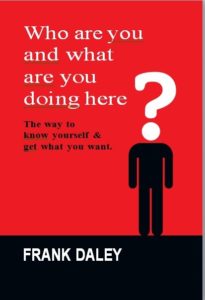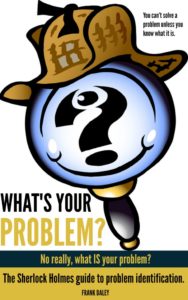At-risk students
Students give various reasons for failing at school, dropping out or otherwise being at-risk for those things.
WHAT ARE THE FALSE “REASONS” FOR STUDENT FAILURE?
1. “I’m stupid.”
2. The teacher hates me.
3. I was never any good at school.
4. etc.
Wrong.
Students make mistakes about their education simply because they don’t have the best information about themselves to make the right decisions.
They simply don’t have the experience or perspective to see the root cause of being challenged at school as being a lack of self-knowledge.
SELF-KNOWLEDGE
They will not consider self-knowledge at all, let alone think that it is the cause of their frustrations.
Often students think they are not good at something when they just don’t know how to approach it.
WHAT ARE THE REAL REASONS THEY ARE AT-RISK?
1. They might have had years of ineffective schooling.
2. They might have learning disabilities.
3. Perhaps they contributed to their own lack of success (we’ll get to that too).
4. They may be ESL students.
5. They may have moved schools too many times.
6. They may have had parents who were too busy at work, too distracted by life, to adequately deal with their children’s scholastic difficulties.
7. The parents might have been too unfamiliar with the language and customs of their adoptive country to become truly involved with their children’s education
THERE ARE OTHER REASONS OR CAUSES TOO
And what if a person has a multiple of these stressors?
He gets frustrated or depressed.
That leads to everything from general lassitude to a reliance on drugs, alcohol or self-harm to kill the pain of their lives falling apart.
Things they think are causes of the problem may only be symptoms.
They are unaware that their true problem is deeper than school.
They do not see the connection between their academic failure and their personal sense of failure.
WHO CAN HELP THEM?
The best people to alert these students to the possibility of academic and personal success are parents, siblings, relatives, teachers, religious leaders and counselors.
I am hopeful that these experienced people–you among them?–will guide those students whom you know to be in difficulty.
Can you help someone you love?
If so, please suggest gently that they visit me at Dropout to Dean’s List.
I can usually help.
If you would like to discuss your child or someone you know who is in difficulty, we can do that too.
These kids need help and they do not realize it or they know it but don’t know when to ask for help.
Now you do.
Email me if you think I can help.
I’ll reply promptly.
For a 20 minute–FREE— introduction, please email me at daleyfank0@gmail.com or call me 647-205-5059.
Also…
Find out the 20 Ways Parents Can Identify At-Risk Students, HERE.
-Frank







